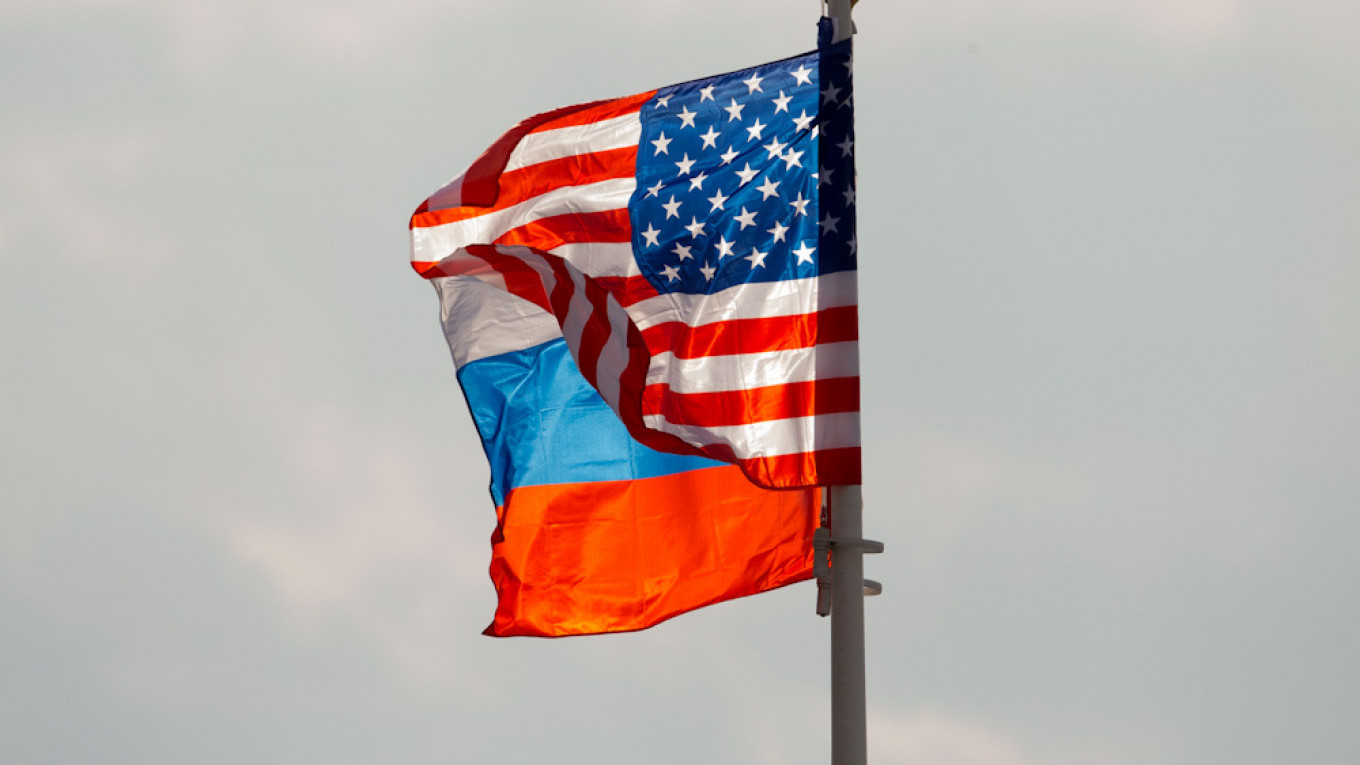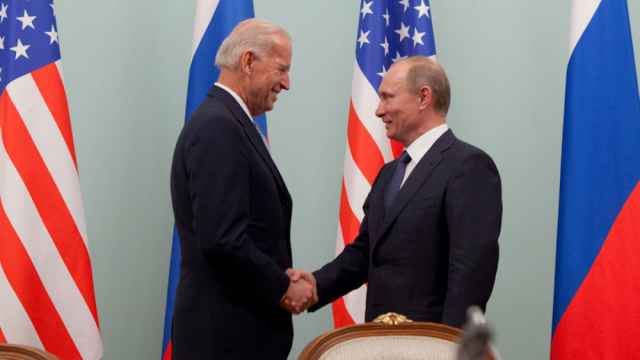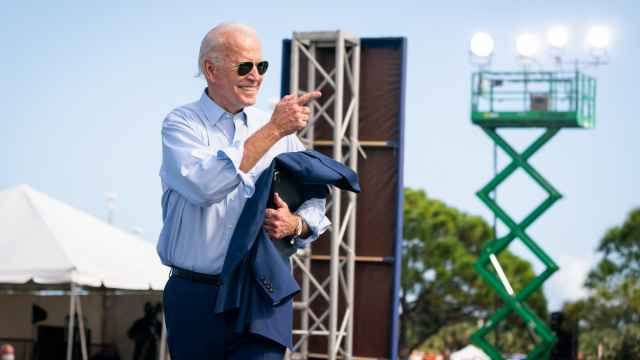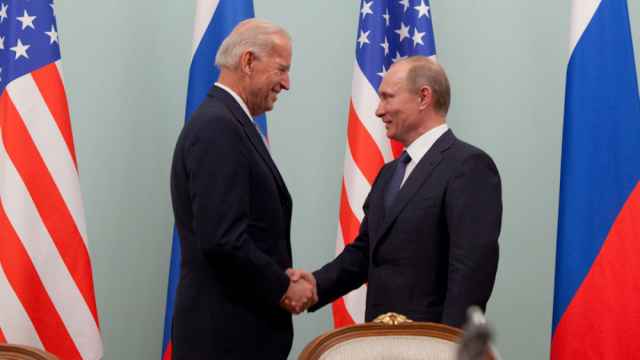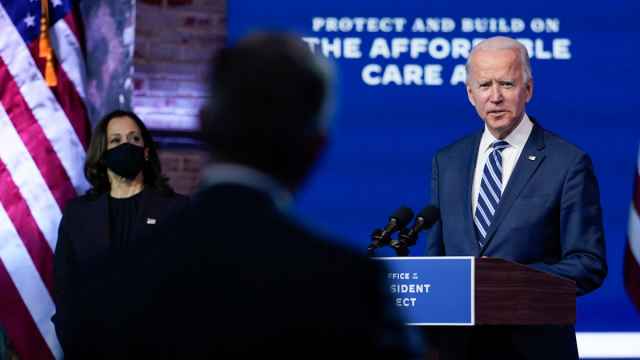As we shoulder our way through the avalanche of “what will Biden mean for Russia” speculation, it is striking that these come as often from Russian as Western sources. And of course, the future of this relationship is important but the tone of Russian commentary says as much about the problematic way the country it views itself as what may happen in the U.S.
Of course, American discussions of Russia are often hyperbolic and blinkered — for too long, to talk about Russia inside the Washington Beltway was as much as anything else to be talking about Donald Trump, and whether you believed he was a Moscow-installed puppet or the victim of ‘Russiagate’ slander. But Russian discussion of America has its own blinkers.
In the government newspaper Rossiiskaya Gazeta, for example, Sergei Karaganov, one of Moscow’s heavyweight foreign policy experts, has just delivered an ode to Russia’s need, in his words, to stop being on the defensive and “offer ourselves to Eurasia and everyone as the leader of what is normal, national, sovereign, peaceful.”
After all, Russia, in his view, not only stands for all this, but has historically been the country which, “through military-political containment, blocks the road to those who unleash the wars’ that so blight the world.”
It is a full-throated call for this “nation of victors” to assert itself in the world, but what is interesting is against whom it is pushing back. It is “against hegemonism in politics”, it is against the “transnationalists,” the “liberals,” although their form of liberalism is instead an attempt to “impose a semi-totalitarian, unified ideology.”
Although there is an obvious nod to the debauched decadence of “Gayropa,” this is clearly about resisting the hegemonic pressure of the United States, and its European proxies and minions. And this is a struggle which Russia must not just join, but lead.
At a time when other Russian experts are advocating caution, it is striking to encounter such determination – desperation — to be an equal to the United States, to regain its position as the other pole of the world.
Russia has not just past glories, but present strengths and future prospects.
However, the thought of being able to attain such comparability with a country with an economy 12 times as large (and even in terms of GDP per capita, more than five times the size). Even allowing for Russia’s ‘hidden’ spending and greater relative purchasing power, the U.S. still has a defense budget outstripping it by leagues, and despite its recent travails, more soft power at that.
But the real point is not whether Russia could seek to equate itself to the U.S. so much as should it. Recall the fury when Barack Obama — clumsily — called Russia a "regional power." There is nothing wrong with being a significant nation, with some global interests and more regional ones, yet no claims to more than that.
The Soviet Union spent itself into the grave trying to keep up with the Americans in the arms race (the United States pretty much bankrupted itself too, but could afford to). Why would post-Soviet Russia want to engage in a new ideological race?
Empire, hegemony, global leadership, call it what you will, this is a ridiculously expensive and intrinsically uneconomic pursuit. It is not one Russia can afford, and there is little evidence Russia – as opposed to the Kremlin and certain members of the commentariat – is interested, either.
There is a reason why Moscow relied on hirelings and adventurers in the Donbass, mercenaries and airpower in Syria.
Russians applauded the annexation of Crimea, a piece of land they felt had always rightfully been theirs, but that does not scale up. The evidence from polls and vox pops alike is that they have no enthusiasm for a grand global mission which means boys coming home in zinc boxes and money that could be building roads in Rostov and clinics in Kamchatka spent instead on foreign bases and ideological outreach.
Surveyed, 71% of Russians think their country is mainly or definitely a “great power.” And they are right, but their terms of reference may not be the Kremlin’s. After all, 47% express positive feelings towards the U.S. and only 41% negative. This is not the stuff of global crusades.
Just get over it
Attempting to match America — especially at a time when China is rising fast as another geopolitical power and national model — is a terrible act of self-harm.
It distracts attention and resources from urgently-needed domestic reform and reconstruction. It plays to the conspiracy-minded silovik mindset that seeks to divide the country between loyalists and traitors and in the process poisons the scope for genuine debate.
And it is doomed to fail. Arguably, America’s global status is itself on the wane.
Whether the Biden presidency can do more than repair some of the worst damage to its international standing from four years of Trumpish dilettantism remains to be seen, but this is not just a one-term malaise. Washington’s capacity to shape the world, always over-hyped, is increasingly open to question.
This obsession with the United States, with the need to challenge a mythical ideological offensive, is little more than a mirror-image of the Washington perspective that sees itself locked in a normative struggle with Moscow, the white-Stetson champion of freedom and democracy against the black-hat authoritarians.
But the big difference is – especially as Trump sulks his way towards the exit — Moscow matters much less to Washington than vice versa. A rising China, restoring transatlantic ties, rebuilding the State Department — frankly, all these are likely to have a greater priority for the Biden administration.
To Moscow, though, like a jilted lover obsessively stalking an old flame, everything is still about America. Even when embracing China, for all the talk of strategic partnership, it is peeking round to see if Washington has noticed.
On one level, this is understandable: even for the Soviet Union, the “Main Enemy” was also the yardstick by which it measured itself.
A Russia that is happy being what it is, would be no bad thing. This not only makes it easier to adopt the more pragmatic and moderate foreign policy so many have advocated, it also avoids wasting scarce resources on prestige projects and risky adventures.
It’s also healthier for the national psyche. It’s time to move on.
A Message from The Moscow Times:
Dear readers,
We are facing unprecedented challenges. Russia's Prosecutor General's Office has designated The Moscow Times as an "undesirable" organization, criminalizing our work and putting our staff at risk of prosecution. This follows our earlier unjust labeling as a "foreign agent."
These actions are direct attempts to silence independent journalism in Russia. The authorities claim our work "discredits the decisions of the Russian leadership." We see things differently: we strive to provide accurate, unbiased reporting on Russia.
We, the journalists of The Moscow Times, refuse to be silenced. But to continue our work, we need your help.
Your support, no matter how small, makes a world of difference. If you can, please support us monthly starting from just $2. It's quick to set up, and every contribution makes a significant impact.
By supporting The Moscow Times, you're defending open, independent journalism in the face of repression. Thank you for standing with us.
Remind me later.



